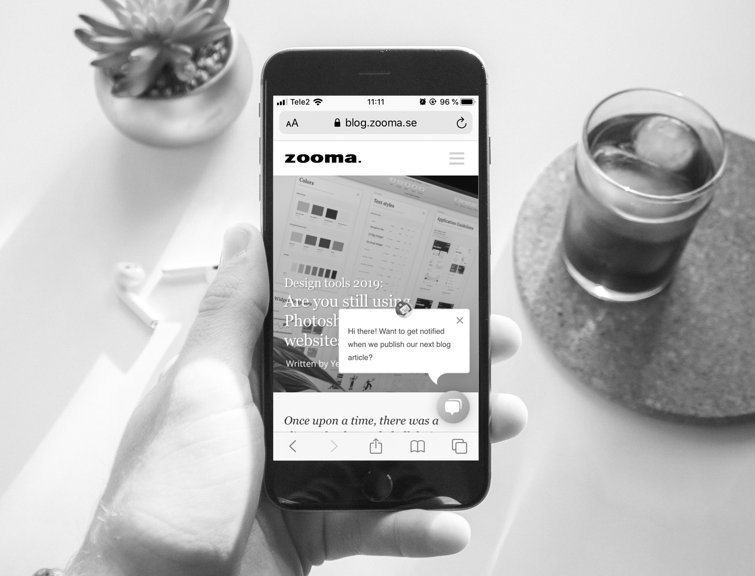The way we communicate with each other has changed. Customers want their problem solved quickly. 71% of people are willing to use Messenger apps to get customer assistance. Find out in this article why chatbots are important and how they work.
What is a chatbot?
A bot or chatbot, short for chat robot, is a program that imitates a conversation with predefined answers and artificial intelligence. With a complex pre-set logic, and in some cases learning functionality, bots can predict a response to a question or statement in a way that is more advanced than a regular discussion.
You have probably already talked to a bot without knowing it; by asking Apple’s Siri or Amazon’s Alexa something, or when you order a pizza with Domino’s Pizza chatbot with Facebook Messenger you use a bot.
When do I need a chatbot?
Whenever there is a customer service needed, you might consider a chatbot. So far, we are only scratching the surface of possible functionality and usability, and we will see huge leaps in the “bot-area” in the very near future.
Bots can do things like telling you where your ordered goods are and when you’re supposed to get it or tell you the weather forecast for tomorrow based on your zip code.
Another example of chatbot use—especially relevant for B2B companies—is the “Subscriber Bot”. This bot asks your first-time blog readers to subscribe to the blog.
With platforms like HubSpot, Outgrow or Drift, it has never been easier for marketers and salespersons to create conversations and implement them with a few clicks.
Do you want a chatbot on your HubSpot website?

Why are chatbots important?
- Chatbots guide visitors to the right place.
- Chatbots engage with visitors and qualify or disqualify them.
- Chatbots capture the need for help 24/7 when the live chat is closed. Customers expect a quick response and great customer experience.
- Chatbots unburden the manual customer service by referring to frequently asked questions.
How does a chatbot work?
A chatbot should be easy to both create and use. Here are three examples of how a bot may look and work.
Example 1: Video of a chatbot that we have created recently with HubSpot
The “Subscriber Bot” asks our blog readers who have visited our blog for the first time, if they would like to get notified when we have published a new article. Additionally, the bot asks our visitors to choose a preferred cadence of notification (instant, daily, weekly or monthly). In this way, we have increased our blog subscriber by 20 % within two weeks.
Example 2: A chatbot that we have created easily with Outgrow
The “Supporter Bot” is having a conversation with customers to find out their issues and needs with their cars. The bot extract data about their vehicle to help them even more. Test it below!
Example 3: Machine Learning and bots
A third example of a bot, and where it gets fascinating from the perspective of closing a lead, is to involve machine learning and segmentation of contacts.
Machine learning is a type of Artificial Intelligence (AI) that provides computers with the ability to learn without being explicitly programmed.
You can, for example, filter out all “hot” contacts who have shown a lot of interest in your content and are not yet a MQL or SQL—short for marketing or sales qualified lead—but have visited the “contact us” page at least two times. Whenever a contact in that group visits your website, you can present a bot saying “Hi! Would you like us to contact you? Just click “yes”, and I’ll get a colleague to continue the conversation”.
At the end of the day, a chatbot may be an excellent tool for conversion and improved customer experiences. If you use it wisely, it will make your everyday work a little easier—and your business a little bit better.
In the next chatbot article, we will dive deeper into specific examples and how to configure more advanced functionalities, based on certain business needs.
If you want to find out more about how to create a chatbot, contact me!

chat
close






